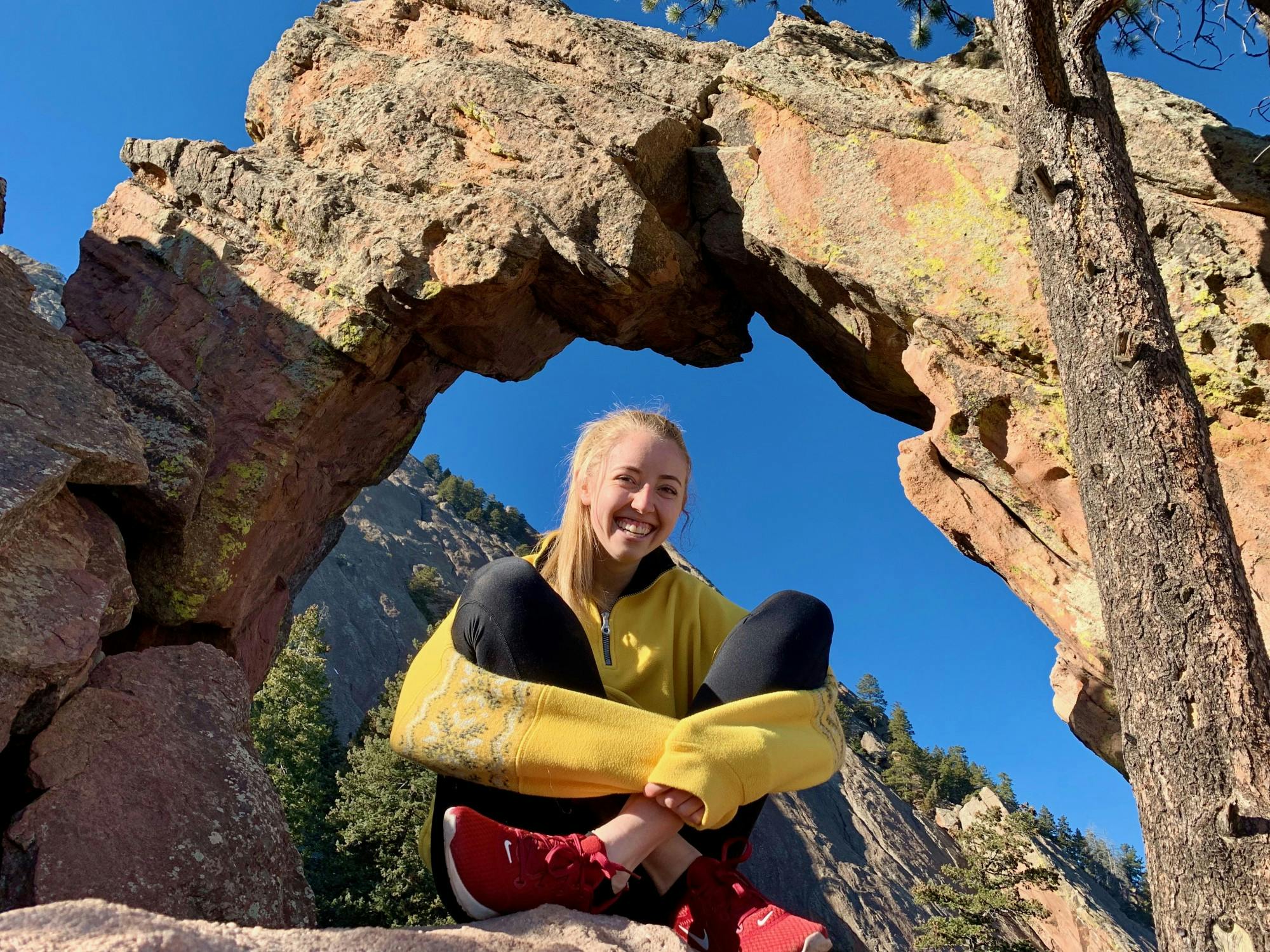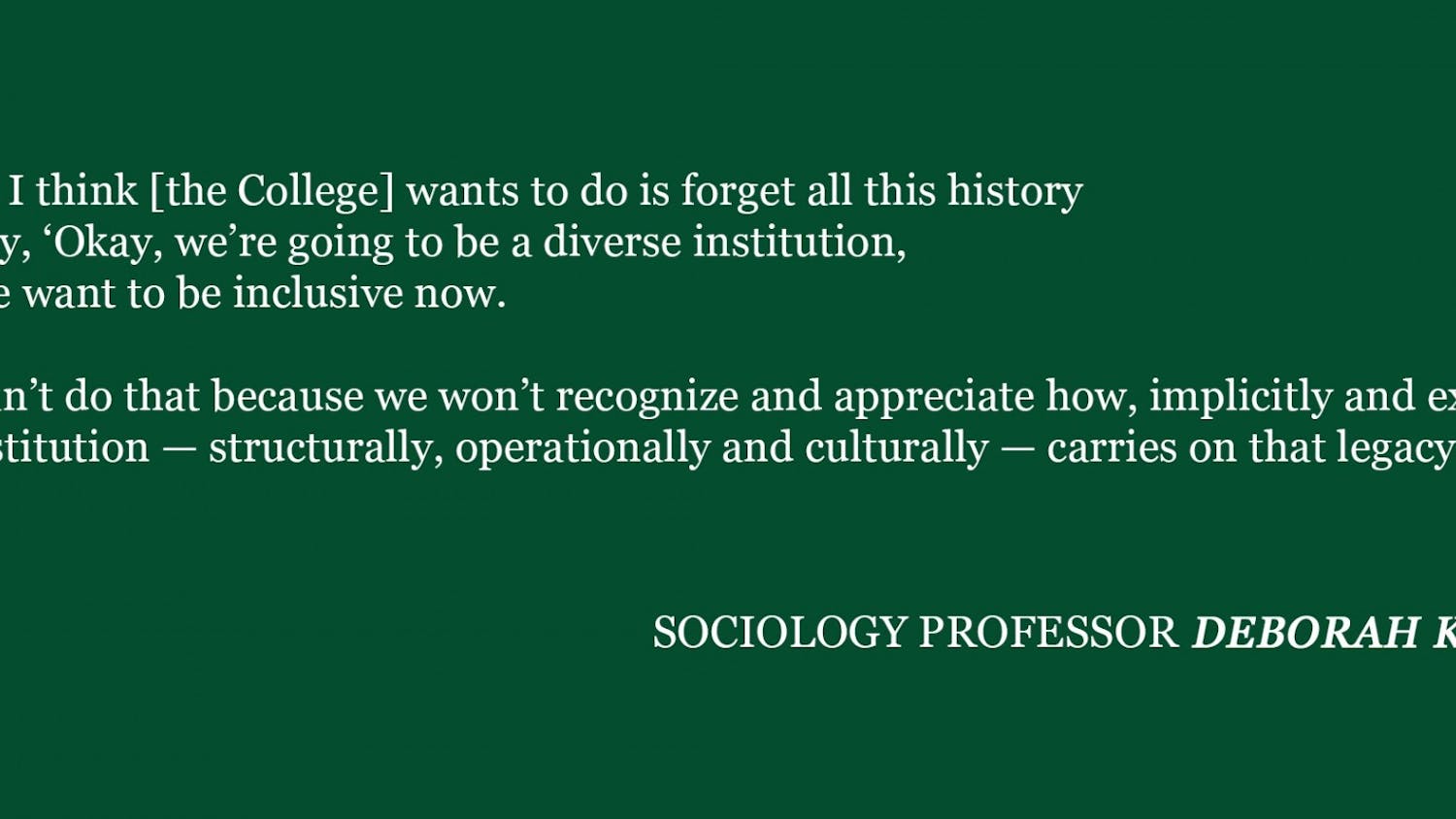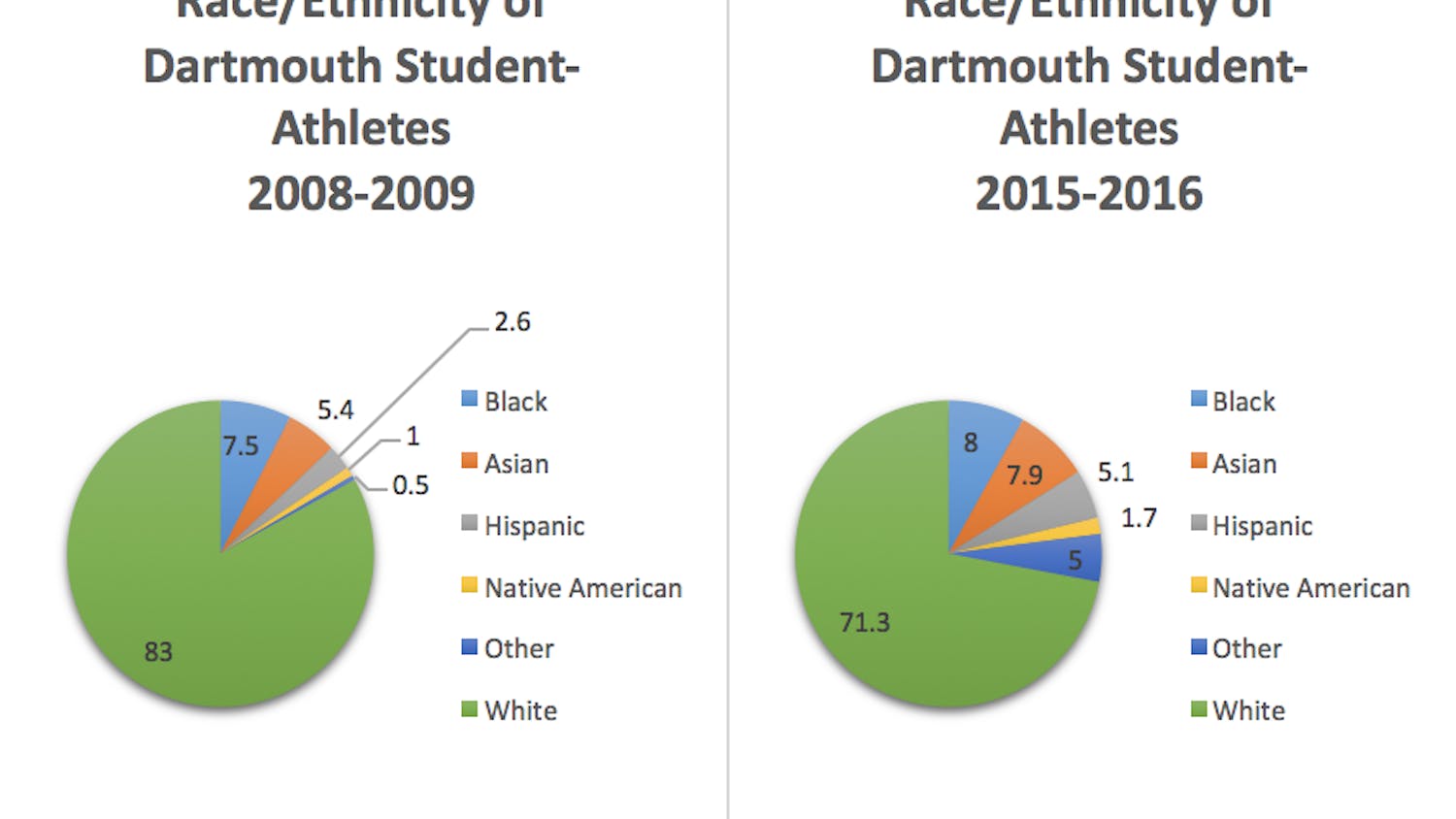When I first came to Dartmouth, I was aware of several aspects of my identity. I was a lover of books. I wanted to study English and creative writing so that I could write stories that helped other people the way the stories I had read had helped me. I was white. I was a woman. I was middle-class. I was from Colorado, and I loved the mountains.
Early my freshman year, I took a women’s, gender and sexuality studies course that showed me how I could conceptualize my own identity in order to better understand others’ identities. The class was largely composed of people of color, which was a new experience for me coming from a predominantly white suburb of Denver. I still vividly remember a class discussion about women’s reproductive rights, in which one particularly passionate student said that “people need to know when to speak up and when to shut up.” The student was referring to the fact that when people discuss issues that apply to identities outside their own — like a man discussing abortion, or a white person discussing racism in America — their first instinct should be to listen, rather than to speak. By doing so, individuals open themselves up to the possibility of learning from insights of a person who actually has firsthand experience with the issue.
This would be my first encounter at Dartmouth with the concept of empathy: not the cheesy, “put yourself in someone else’s shoes” kind of empathy, but the actual act of attempting to understand another person’s emotions, experiences and motivations. The pursuit of empathy redefined the way I approached the next four years of college.
“Know when to speak up and when to shut up” became words that I attempted to live by. Shutting up proved to be pretty painless for me, though I don’t think it is for everyone at Dartmouth. Upon arriving in Hanover, I quickly realized that I was surrounded by some of the most diverse, compassionate and insightful people I had ever met. Listening to them was a privilege. And as a writer, I loved observing people, because they gave me inspiration for telling stories.
Speaking up was more difficult. I have always been better at writing than talking, and I was intimidated by the overt intelligence of so many individuals at Dartmouth. I was most open with my friends — kind and strong people from Ohio, Arizona, Maine, Thailand and other places all over the world — who made me feel like I had things worth saying. But even with them, I was scared to reveal too much, mainly because maintaining a strong facade felt like my best weapon against the constant stress of academic, extracurricular and social life at Dartmouth.
One night about halfway through my sophomore summer, I was crying in my friend’s room. I was frightened by the prospect of the first two years of college ending and the next two beginning, bringing the looming prospect of adulthood with them. I was unhappy with some of the relationships I had formed at Dartmouth. I was frustrated by how much I felt like my socioeconomic status had separated me from the 45 percent of the student body who come from the wealthiest five percent of this country. I was frustrated by how much I felt like the Greek system had limited the relationships I was able to form at Dartmouth. I was frustrated by the pervasive misogyny at Dartmouth. My grandpa had recently died. I had all of these thoughts and emotions swirling inside of me, and yet this was the first night in a very long time that I had chosen to share them with someone. Which was why I was crying so much that I could barely speak.
I remember my friend telling me simply, “You have to tell people how you feel.” Hearing those words finally made me understand that shutting up and listening is only half the battle to creating empathy, though perhaps the more important half. Speaking up, and sharing your experience too, is the only way to complete the process and form a genuine connection with someone. And at Dartmouth, speaking up is surely the only way to survive with your mental health intact.
Around this time, I began pursuing a human-centered design minor. I found a whole field dedicated to empathy. I learned how to use that understanding of other people’s experiences to design products and services that best fit individual needs. I loved the shutting up part: conducting research and user interviews to gain knowledge. And I got better at the speaking up part: converting those insights into presentable concepts. I gained confidence in my ideas and my voice. I got better at being vulnerable with other people, which allowed them to be more vulnerable with me. My relationships were stronger because of it.
I also wrote for and eventually began editing Mirror. Writing for The Dartmouth was the ultimate act of speaking up, but the part I loved, as always, was shutting up — interviewing people on campus with diverse identities and opinions in order to tell stories that hadn’t been heard before. I contributed to stories about mental health, class, accessibility, racism, gender and more, all with the hope that by providing a platform for the multifaceted experiences of Upper Valley residents, there might be a little more empathy in the community. At least for as long as it took for an individual to read an article, they would shut up, and listen to a story that may or may not be different from their own. And if I was really lucky, maybe they would speak up too.
2020 is a year when empathy is more important than it has ever been, especially as a white person — an identity of which I have become more uncomfortably aware than ever before. As a white person, I have made harmful mistakes and failed to show non-optical allyship to black, indigenous and people of color many times. It shouldn’t have taken this long for me to recognize my mistakes. Now that I have, I must exercise the empathy I have learned at Dartmouth to grow from those mistakes and be actively anti-racist. I will have to continue learning and growing for the rest of my life.
Shutting up is still important. My non-black peers and I owe it to the black people whose bodies we have profited off of for hundreds of years to listen to their experiences and uplift their voices — that’s something we already should have been doing, even before the Black Lives Matter protests. But it’s not the job of BIPOC to educate us on their suffering and how to fix it. We have to seek the information on how to combat systemic racism ourselves, and then use what we’ve learned to speak up. We have to share information on social media, donate to bail funds, sign petitions, call our representatives and protest. We have to remember to center black voices every step of the way. As a white person, I know I have the power, the privilege and the duty to speak up and do whatever I can to support this movement for human lives. Right now, empathy is not just listening and speaking. Empathy is advocacy. Empathy is action. Empathy is change.
I’m graduating from Dartmouth more aware of the different aspects of my identity. I’m still a white woman from Colorado, still a lover of books. But I am also an expert at crying. I am a bad dancer and an even worse spike ball player. I am a designer, a journalist and a creative writer. I am a good friend and a good listener.
I learned all of these things about myself only after learning about other people. I still have so much to learn. I’m still not perfect at creating empathy. But because of my four years at Dartmouth, I will always continue to pursue empathy. And especially right now, the pursuit is what matters the most.
Kylee Sibilia ’20 is a former Mirror editor of The Dartmouth.




